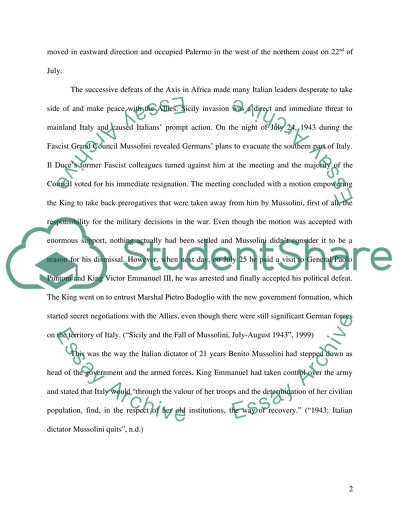Cite this document
(“Mussolini's Ousting from Power in July 1943 Essay”, n.d.)
Mussolini's Ousting from Power in July 1943 Essay. Retrieved from https://studentshare.org/military/1526518-italian-fascism-essay
Mussolini's Ousting from Power in July 1943 Essay. Retrieved from https://studentshare.org/military/1526518-italian-fascism-essay
(Mussolini'S Ousting from Power in July 1943 Essay)
Mussolini'S Ousting from Power in July 1943 Essay. https://studentshare.org/military/1526518-italian-fascism-essay.
Mussolini'S Ousting from Power in July 1943 Essay. https://studentshare.org/military/1526518-italian-fascism-essay.
“Mussolini'S Ousting from Power in July 1943 Essay”, n.d. https://studentshare.org/military/1526518-italian-fascism-essay.


